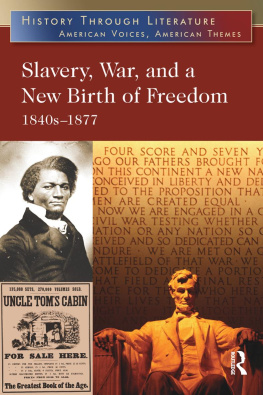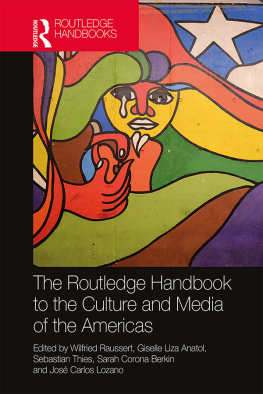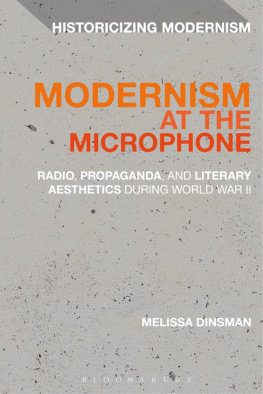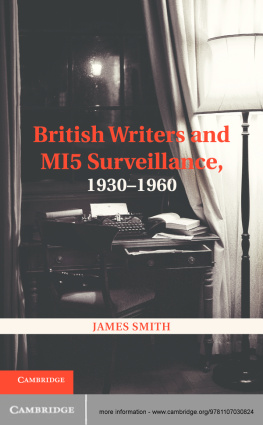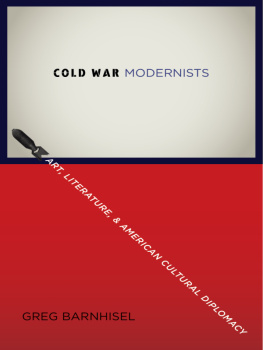

2016 Joel Whitney
Published for the book trade by OR Books in partnership with Counterpoint Press.
Distributed to the trade by Publishers Group West All rights information:
All rights reserved. No part of this book may be reproduced or transmitted in any form or by any means, electronic or mechanical, including photocopy, recording, or any information storage retrieval system, without permission in writing from the publisher, except brief passages for review purposes.
First trade printing 2016
Cataloging-in-Publication data is available from the Library of Congress.
A catalog record for this book is available from the British Library.
Text design by Under|Over. Typeset by AarkMany Media, Chennai, India.
10 9 8 7 6 5 4 3 2 1
ebook ISBN 9781944869267
TABLE OF CONTENTS
If you speak for the wolf, speak against him as well.
Aleksandr Solzhenitsyn
Where else but in Eden could we find our freedom only by losing it...
Richard Howard, Lining Up
In early 1966, Harold Doc Humes, one of the founders of The Paris Review, wrote a well-intentioned ultimatum to George Plimpton, another founder. Having left it to Plimpton to run the famous magazine long before, Humes was floundering. Living in London, where his wife Anna Lou had left him over the holidays, he was dogged by bouts of extreme paranoia and convinced that he was under surveillance. According to Anna Lou, he believed that the bedposts in his London home recorded whatever he said, and that the recordings were then played directly for Queen Elizabeth.
Yet in his March 1966 letter to Plimpton, he was clear and reasonable, writing that Peter Matthiessen, another Paris Review founder, had just visited London and had told Humes an astonishing story. During his stay, Matthiessen had admitted that The Paris Review was originally set up and used as a cover for [Matthiessens] activities as an agent for the Central Intelligence Agency. Humes continued,
He further said that you [Plimpton] knew nothing about this until recently, that in fact when he told you your face turned the color of (my) sweater which I hasten to inform you is neither red nor blue but a very dirty grey-white, my having worn nothing else since my wife left. It precisely matches my spirits; they get greyer every day.
Humes even sympathized. I believe Peter when he says he is properly ashamed of involving the [Paris Review] in his youthful folly, and, true, this was all 15 years ago. BUT...
Humes was just one of The Paris Reviews larger-than-life personalities. The magazine received early praise from American publications like Time and Newsweek, and also from magazines and newspapers all over Europe. It helped launch the careers of William Styron, Terry Southern, T.C. Boyle, and Philip Roth, among others. It threw legendary parties where, for decades, actors like Warren Beatty and political and cultural figures like Jackie Kennedy would rub shoulders with New York Citys writers and book publishing rank and file. Its editor-in-chief Plimpton was already a best-selling author, a friend of the Kennedys, one of Esquire magazines most attractive men in America, His personal entourage drew attention, too. A 1963 Cornell Capa photograph shows a group assembled for one of the famous cocktail parties in Plimptons apartment. In the picture are Truman Capote, Ralph Ellison, Humes, Matthiessen, Styron, Southern, and Godfather author Mario Puzo.
In Paris in the 1950s, long before they were famous, Matthiessen, Humes, Plimpton, and a few classmates debated what to call the magazine. They couldnt decide between the name that eventually stuck and other suggestions, such as Baccarat. Humes and Matthiessen were already involved with the project of launching a new magazine in Paris before Plimpton was called over from Cambridge. Handing off their project, Humes and Matthiessen both left decisions largely to Plimpton in order to attend to their writing careers. On his way to becoming a Zen master and an award-winning novelist and nature writer, Matthiessen published early, including in The Paris Reviews first issue, and won fans for his fiction and nonfiction alike. Plimpton became a participatory sports writer, whose best-selling book on quarterbacking for the Detroit Lions was made into a film with Alan Alda. No slouch himself, Humes published a pair of novels in 1958 and 1959 that earned praise in The New York Times and elsewhere. Humess diverse lifetime accomplishments would include a scheme to make affordable homes for poor people out of pressed newspapers and cardboard, running Norman Mailers New York City mayoral campaign, dropping LSD with Timothy Leary, and successfully fighting the New York City police over the racist Cabaret Card laws in effect at the time. But, as with so many young people who were acutely sensitive to the changes of the 1960s, Humes began to veer off the path, casting about for his calling. He thought he was being watchedwatched from above. Especially after the Kennedy assassination, Humes was growing increasingly paranoid, railing about being bugged and followed. After his marriage unraveled, he wandered the ruins of Rome, started a new family, witnessed the 1968 student protests in Paris, produced a Beat-poetry-inspired short film titled Don Peyote, and gave away thousands of dollars of his inheritance as anti-capitalist performance art around Columbia University in uptown Manhattan (where he squatted in the young Paul Austers dorm). But in his letter to Plimpton, he was acting in his capacity as a founder of The Paris Review, claiming he had the best interests of the magazine in mind.
Arguing that an association with secret institutions like the CIA would inevitably lead to rot, Humes advised Plimpton that, for the integrity of the magazine, he should make Matthiessens ties during the magazines founding public. Citing Edmund Burkes line that it is enough for evil to triumph that good men do nothing, Humes wrote, I have deeply believed in the Review and all that we hoped it stood for, but until this matter is righted I feel I have no honorable choice but to resolutely resign. Even if I have to split an infinitive to do it. He went on to suggest that Matthiessen might laugh the matter off in print in a manner calculated to restore our tarnished escutcheon... Under these circumstances, he would stay. Barring that, however, I should like my name removed from the masthead. Im sure it will not be missed.
In attempting to inspire his colleagues to come clean, Humes cited an opinion that grew increasingly common as revelations of the CIAs vast propaganda apparatus were published in Ramparts magazine and The New York Times in 1964, 1966, and 1967. Namely, that any association with the super-secret spy agencynotorious for coups, assassinations, and undermining democracy in the name of fighting Communismtainted the reputations of those involved. Humes pressed the point forcefully. Since this was apparently a formal arrangement, involving his being trained in a New York safehouse and being paid through a cover name, then without doubt the fact is recorded in some or several dusty functionarys [sic] files in Washington or around the world that our hapless magazine was created and used as an engine in the damned cold war... He continued,
although Peter is not [to] be blamed for a paranoid system that makes victims of its instruments, nevertheless what of Styron?... What of half the young writers in America who have been netted in our basket? What color would their faces turn?
Next page

